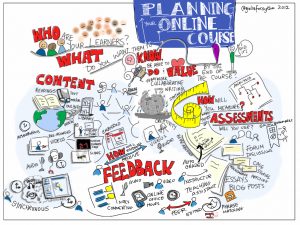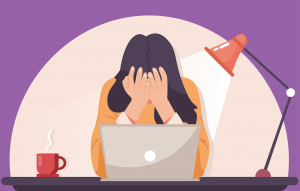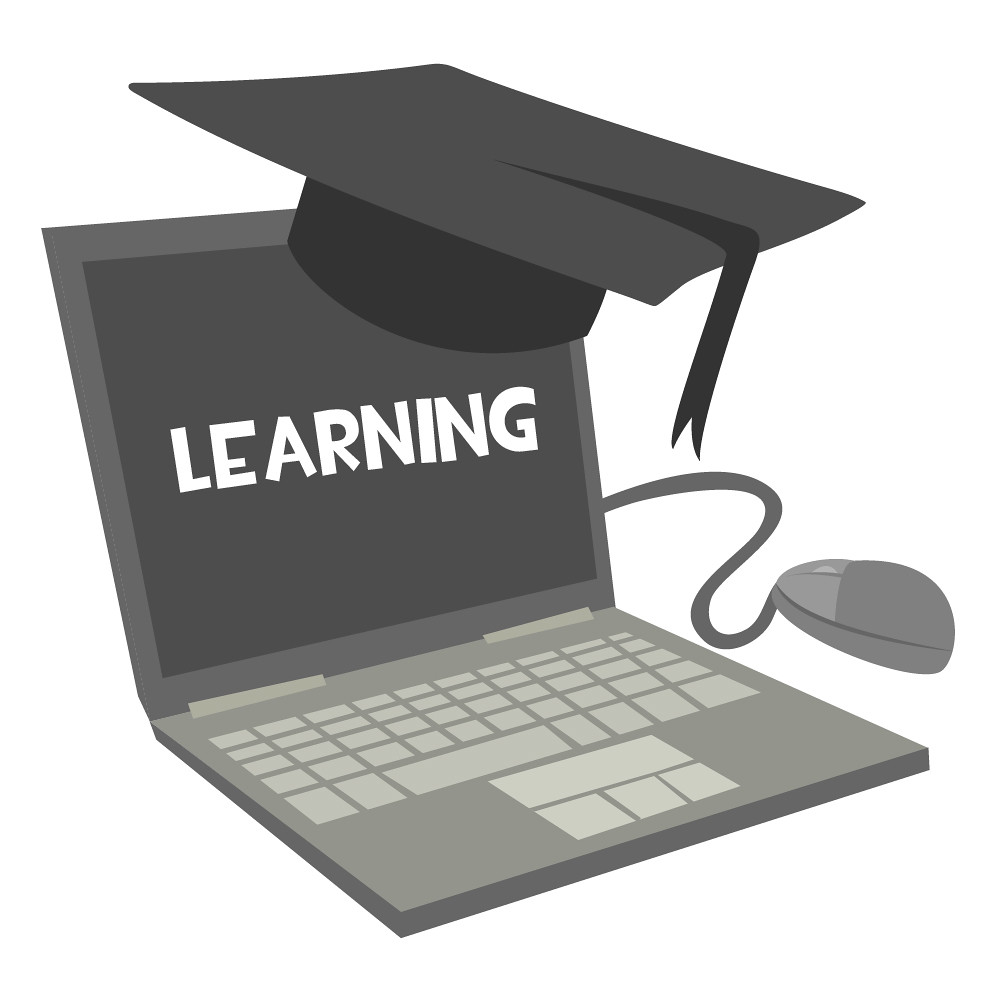It was the same day for many: adults were going to work, kids were off to school, people were looking forward to going home to relax and watch some NBA basketball. Just another normal day in March, or so everyone thought. Nobody knew that this would be the last “normal” day they would get to experience for a year and a half and counting. Soon enough, people began tuning into the news, seeing more stories of a strange new virus in China, but thinking nothing of it since it first showed up in December. Then the first known cases of it had made its way to the United States, and, just like that, before people could process what was going on, people were getting calls from work and school, the whole world started to go into a lockdown. The sounds of cars driving on streets and highways close by quieted. The school hallways were dark and empty, people began to work from home if possible. Panic and worry arose in every home, and just like that, a new “normal” had begun.
Pandemics are few and far between, but throughout history they have had great impacts on the lives of the people affected, and this virus now referred to as Covid or the Coronavirus is no different. Covid has had a big impact on the lives of everyone. Restaurants and businesses were forced to shut down publicly and move work on-line, big events were cancelled, and supply shortages began with toilet paper. One of those big transitions was moving school online, which, even now, certain school are still trying to transition back to in person and have begun to accommodate people who want to continue with these online classes. This period of time has often been referred to as Zoom University, which has made students, teachers, and parents all wonder: Just how much of an impact did this period have on the students academic success?

In a matter of weeks, students had already been transitioned to start online classes. They began to try and adjust to the new norm and ways of learning, from sitting in a video call with their teacher and fellow students, to just receiving assignments and information in an asynchronous matter, there was a plethora of different things to get used to. Throughout it all, many began to wonder: Is this really as bad as I thought it would be? Am I doing better or worse than I was when classes were in person?
This leads to the first question: was there a big difference in students’ grades from online classes in comparison to in person? OneClass surveyed over 14,000 college students about their fall 2020 experience. Students from 232 public and private universities responded. What they found was 85 percent of respondents said the pandemic had a negative effect on their performance, 9 percent said the pandemic didn’t affect their performance, and about 5 percent said the pandemic had a positive influence. 1 As school administration, students, parents, and even employers became curious, there were various research studies conducted and most came to the same conclusion: between in person and online class experiences, the latter resulted in students grades declining. When the pandemic began, the United States Military Academy at West Point professors of economics wondered the same thing, and so they decided to study the situation. Each professor had an online and an in-person portion of the class with relatively even amounts of students, and all of the course material was the same. At the end of the semester, it was found that those taking the online course had a standard deviation of -0.2 lower than that of their counterparts. 2 Why might this be? This caused by many different factors, but probably the most important reason for the difference is the lack of communication often felt in online classes. Due to the disconnect, students often asked less questions and went to professors for help less often.

As assignments continued to roll out, many students’ dashboards lit up with missing or incomplete icons, while some would wake up and see what was due for the day and be prepared to finish it by 12:00 am, not treating essays and regular homework any differently. Thanks to the end of typical campus activities there was so much time in their days. What was the point in worrying about an assignment that was due 4 days? Not being able to go out and do what they normally did, or anything at all for that matter, made many begin to feel as if they had all the time in the world to both work and also relax and watch Netflix all day long.
This “I”ll do it later” mentality, due to the difference in class format between online and in person-classes resulted in many students’ work ethics declining. This was in part due to having many classes in which assignments had a general long-term completion date, just needed to be done by the end of the semester. Students would get a certain amount of assignments for a week and it didn’t matter which order they were done in as long as it was turned in by Sunday. As has been found in the past, a study was done by Dan Arielle in which 3 groups of students were selected for a class and each one had a different due date for the same three essays. One group just had to get it done by the end of the semester, another was able to set their own due date, and the last group had theirs due in an evenly spaced time. To no surprise, the group who had the most students complete the essays was group 3, followed by group 2, and then group 1. It also said that in the case of group 2, those who evenly spaced out their due dates themselves got the assignment done on time. 3 This study helps to show just how important due dates are for goal setting, not only for students but people in general. Also, in general, 20% of adults are considered chronic procrastinators, but when entering college, that number skyrockets to 50%. 4

As many students sat around procrastinating with their assignments, watching tv, often times people would begin to check their phones. Most found only a few notifications or none at all. Sure, having a friend to FaceTime every so often was nice, and the occasional good snap conversations were fun, but being together with others in person has a huge impact on our relationships. Students and people in general slowly began to realize just how important in person interactions were to their overall happiness and health.
One of the biggest factors impacting students’ success is a students’ health, although people underestimate just how big of a role it plays in academics. With almost any situation in life, people do better whenever they are healthy mentally and physically. Some of the results of mental health struggles for students includes: inability to focus and complete challenging tasks, missed days of school due to illness or school avoidance, course credit deficiencies over time, and lower end-of-course grades.5 Although mental health challenges obviously cannot be avoided at times, if detected early, can lead to improved academic achievement and reduced disruptions at school. 6 The biggest obstacle the pandemic brought for many was not getting an adequate amount of social interactions with friends, teachers, and family members. While there were things such as FaceTime and other messaging apps to help, others still lacked the social relationship interactions they needed, and as a result, their mental health declined. For some people, who lived alone or did not have many friends, school and work were where they got this quality face to face interaction time.
Although online school has positive aspects, oftentimes with many situations, the good is overshadowed by the bad and prevents issues from being noticed and solved. With schools beginning to switch back to fully in-person classes, it will be important for teachers and parents alike to understand the struggles that developed with online school for many students and give them a chance to readjust before questioning why they might be struggling academically. It is important for those teachers and students continuing classes online, that they understand some of the critical difficulties online presents and to find solutions to make a great experience for both teacher and student. It will also be important for students to figure out the best way to transition back to in person classes and to get back on track with their academics.
One of the most crucial things to maintain good grades is discipline. If you are finding yourself struggling to meet deadlines, find a schedule that works for you and gives you time for the important things in your life, and find spots of time that you can designate focus for studying, work, or anything that you need to get done. It’s also just as important for students to get used to making conversation and friends once again, especially for those who might be at a new school than at the start of the pandemic. Making friends is probably a skill that many of us took for granted. A good place to start if you’re a college student is to make friends with your roommate, suite-mate, resident assistant or classmates. Find subjects that are common ground to talk about. You may have to be the one to initiate the conversation. Once you meet a few people, and participate in activities together you’ll be able to start meeting more people through those people and will find people that are easy to talk to. It can be helpful to look for and join campus organizations that interest you. Remember, you’re not alone in feeling out of communication practice. Most importantly, don’t stress over this, nothing forced is ever good, so just relax and enjoy the ride as you transition back to school and life.
- Amour, Madeline St. “Survey: Pandemic Negatively Affected Grades This Fall.” 1150 Conneticut Avenue NW Suite 400, Washington DC, 5 Jan. 2021. ↵
- Cellini, Stephanie Riengg. “How Does Virtual Learning Impact Students in Higher Education?” Brookings.edu, Brown Center Chalkboard, 13 Aug. 2021, https://www.brookings.edu/blog/brown-center-chalkboard/2021/08/13/how-does-virtual-learning-impact-students-in-higher-education/. ↵
- “Improve Your Productivity With the Power of Deadlines.” Art of Manliness, created by Brett McKay, Spotify, 2 Aug. 2021. ↵
- “Improve Your Productivity With the Power of Deadlines.” Art of Manliness, created by Brett McKay, Spotify, 2 Aug. 2021. ↵
- NITT-TA. “Mental Health and Academic Achievement.” Education.nh.gov, SAMHSA, https://www.education.nh.gov/sites/g/files/ehbemt326/files/inline-documents/mental_health_and_academic_achievement.pdf. ↵
- NITT-TA. “Mental Health and Academic Achievement.” Education.nh.gov, SAMHSA, https://www.education.nh.gov/sites/g/files/ehbemt326/files/inline-documents/mental_health_and_academic_achievement.pdf. ↵




31 comments
Carolina Wieman
As a student that has lived through the coronavirus pandemic during my high school years, it truly did change the way I learned. Students of all ages began to have developmental issues such as an increase in social anxiety, depression, and ADHD. Not being able to interact with teachers and peers created an educational rift that still lingers to this day. Students that began high school just went back to school for senior year and college missing crucial years of mental development and independency. As students keep transitioning I hope that more things will be put in place to help those that need extra help.
Kelly Arevalo
Hello, Aztlan. I just finished reading your article for the second time, and I felt, once again, identified with some of the things you mentioned. When you talked about how discipline has been affected by the pandemic, I remember on how it was getting more difficult each day to keep up with my routines during that time, especially my study routine, since without the constant pressure of my peers or teachers, it was easier to stay behind. I like how you describe what this experience has been like, and how you got your point across in a pretty engaging way.
Kayla Braxton-Young
This is a very interesting topic and the article is written very nicely. In these past few years, we experienced a huge problem in the world which made us have to do everything online and even made some people lose their jobs. That huge thing was COVID which was a virus that spread around the world fast. That made us have to use zoom, which was a source to do online classes. Sometimes I miss those online classes with zoom and then other times I don’t.
Madeline Bloom
This article was very interesting. Being a high school student during the pandemic was very interesting to say the least. I know that Zoom/online learning was very challenging for most people. It allowed grades to slip when in reality they would not have if we were in person. He talks about the mindset of “I’ll do it later” affected everyones mindset on learning. Some are still trying to transition back into classes in person.
Robert Miller
My introduction to Zoom was while working as an Investigator with Child Protective Services. We used it for our first team meeting when the pandemic started. I had no idea at the time how much I would rely on it, or for how many different aspects of my life it would be used. From using it for my first semester at St. Mary’s to meetings with my child’s teacher, and even to job interviews, I wish I had bought stock in Zoom when this whole thing started.
Laura Poole
This was a very relatable article. Learning via zoom was such a dramatic change for my academic and social life. It was so hard for me to adequately learn when just watching my teacher on a screen everyday. It was so hard to avoid the “I’ll do it later” mindset that many people fell victim to. For some zoom worked well but for many others like myself, it made learning much more difficult.
Kimberly Rivera
I truly enjoyed this article mostly as I had finished my senior highschool year doing zoom learning and was affected by it both socially and mentally as i began believing that i had all the time in the world almost adapting the “I’ll do it later” mindset. I agree that the pandemic affected so many students and their academic success but i also believe it opened and opportunity to be able to learn time managment.
Emily Rodriguez
This article was, and I’m sure will continue to be, very relatable for most students over the next couple of years. You brought up a lot of good points, such as the decline in work ethic, and the rise in procrastination. I believe with the amount of leniency that was given to students during online school, students have not grown out of that mentality yet. As an education major, it’s scary to think about how far behind elementary/middle school students are right now because of the online school years. For most of us, I think we can agree that we took for granted in-person classes; I know I did. Overall, I think this article was very relatable and had a good cause-and-effect sequence.
Kiana Contreras
I enjoyed reading your article. It brought back memories from two years ago. I agreed when you mentioned that Covid had some sort of effect on the social interactions with people after the pandemic started to die down and people began going back to school/work. I can relate to it, the whole having a hard time with procrastination and mental health, which brings me to relish this article. Well done.
Jace Nicolet
This was very compelling to read because I was directly affected by the zoom learning and want to compare and contrast my experiences with the masses. He talks about the ‘ill do it later’ mindset and how it caused many peoples grades to drop and I was also affected by this mindset. I also like how the author relates zoom learning to not having very much communication and you could see nobody wants to initiate convorsation.